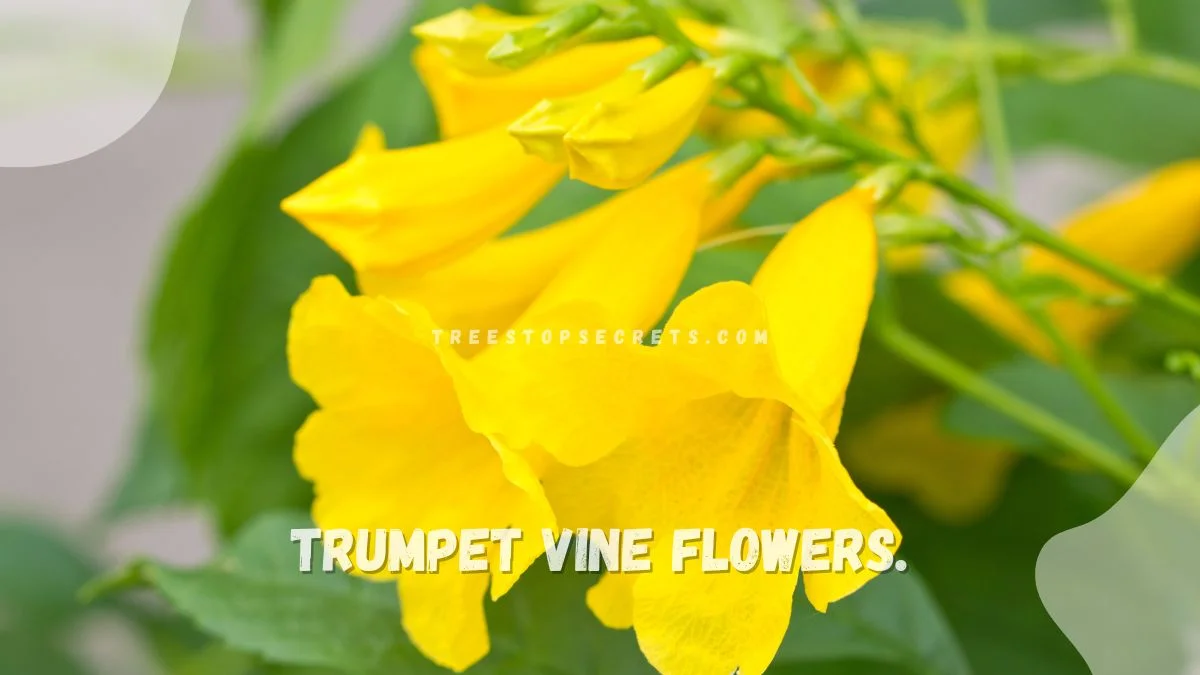Discover the beauty and resilience of perennial vine flowers that grace your garden with vibrant hues season after season. Unlike annuals that require replanting each year, these perennial vines offer a contrast by returning year after year, showcasing their blossoms without the need for constant replanting. From the graceful wisteria to the charming clematis, these climbing plants not only add visual appeal but also attract pollinators, creating a lively ecosystem in your outdoor space.
Get ready to explore a world where nature's artistry meets enduring charm with perennial vine flowers. Embrace the effortless beauty and low maintenance of these blooms as they transform your garden into a colorful oasis that lasts beyond just one growing season.
Key Takeaways
- Choose perennial vines that suit your garden's sunlight and soil conditions for successful growth.
- Consider popular options like clematis, honeysuckle, and wisteria among the top 14 perennial vine choices.
- Follow essential growing tips such as providing proper support structures and regular watering to ensure healthy development.
- Maintain your perennial vines by pruning, fertilizing, and protecting them from pests and diseases according to the care guide.
- Use perennial vines creatively in your outdoor spaces to enhance aesthetics, privacy, and vertical interest.
- Transform your outdoor areas into inviting retreats by incorporating perennial vines in arches, trellises, or as ground covers.
Choosing Perennial Vines
Garden Aesthetics
Perennial vines enhance outdoor beauty by adding vibrant colors and textures to your garden. These flowers create a colorful oasis, attracting butterflies and hummingbirds. They add visual interest and appeal, making your landscape more dynamic.
Utilizing perennial climbing vines in your garden can transform it into a colorful paradise. Popular plants like clematis and wisteria offer a wide range of hues, from soft pastels to bold primaries. The variety of colors adds depth and charm to your outdoor space.
Vertical Interest
Perennial vines are excellent for adding height and dimension to your garden. They create vertical focal points that draw the eye upward, making small spaces feel larger. By growing climbing vines vertically, you can maximize space and create a stunning visual impact.
- Climbing vines such as morning glories and trumpet vine can be trained to grow upwards on trellises or arbors.
- These vines not only add height but also create a sense of privacy and enclosure in your garden.
Landscape Elevation
Elevate your landscape design by incorporating cascading vine flowers. These plants drape elegantly over fences, walls, or pergolas, adding layers of interest and texture to your garden. Varying heights of perennial vine flowers enhance the overall aesthetic appeal of your outdoor space.
- Consider planting trailing vines like ivy or bougainvillea to cascade down walls or spill over containers.
- Mixing different vine varieties with varying growth habits can create a visually captivating display in your garden.
Top 14 Perennial Vines
Trumpet Vine
Cultivate a fast-growing vine with vibrant orange, red, or yellow flowers. Attract hummingbirds to your garden with their nectar-rich blooms. Manage its aggressive spreading by monitoring and controlling its underground stems.
False Hydrangea
Grow a vine similar to climbing hydrangea but with showier flowers that add elegance to any garden. Thrive in part shade or full shade conditions, making it versatile for various environments. Explore the beauty of the 'Moonlight' variety with its stunning foliage that enhances visual appeal.
Dutchman's Pipe
Nurture a native vine boasting heart-shaped leaves and unique purple flowers, attracting admiration from all who see it. Enjoy its adaptability to both sun and shade, making it suitable for different areas in your garden. Support swallowtail butterflies by providing them with a host plant they love.
Bittersweet
Cultivate a quick-growing climber known for its yellow-orange fruits that add a pop of color to your landscape. Provide full sun exposure and well-drained soil to ensure optimal growth conditions. Remember that both male and female vines are necessary for fruit production, enhancing biodiversity in your garden.
Hardy Passionflower
Grow a hardy vine featuring intricate lavender flowers that bring a touch of elegance to any outdoor space. Thrive in full sun with well-drained soil, ensuring proper care for healthy growth. Manage its potential aggressive spread through underground runners by regular monitoring and maintenance.
Clematis
Choose from versatile varieties of clematis that bloom in different seasons, offering continuous beauty throughout the year. Ensure optimal growth by planting in full sun with well-drained soil, providing the ideal conditions for flourishing vines. Explore evergreen options for mild-winter climates to enjoy year-round greenery.
Akebia
Grow a vine with delicate blue-green leaves and fragrant flowers that add a lovely scent to your garden. Provide full sun exposure and moist, well-drained soil for the best growth results. Enjoy the unique chocolate scent emanating from its purple or white flowers, creating a delightful sensory experience in your outdoor space.
Growing Tips
Soil Prep
When planting perennial vine flowers, ensure the soil is well-draining and rich in organic matter. Consider adding compost for nutrients.
To promote healthy root growth, loosen the soil to a depth of about 12 inches before planting. This helps the roots establish easily.
Sunlight Needs
Perennial vine flowers are typically fast growers that thrive in full sun. Ensure they receive at least 6-8 hours of direct sunlight daily.
Insufficient sunlight can lead to leggy growth and fewer blooms. Place them in a location with ample sunlight exposure.
Watering Schedule
Maintain a consistent watering schedule for fast-growing perennial vine flowers. Water deeply once a week during dry spells.
Avoid overwatering as it can cause root rot. Monitor the soil moisture levels and adjust watering accordingly.
Pruning Practices
Regular pruning is essential for maintaining the health and appearance of perennial vine flowers. Remove dead or damaged growth throughout the growing season.
Prune back overgrown vines in late winter or early spring to encourage new growth and flowering. Use clean, sharp pruners for precision cuts.
Care Guide
Pest Control
Perennial vine flowers are susceptible to pests like aphids and spider mites. Regularly inspect plants for signs of infestation to address issues promptly.
To control pests, consider using natural remedies such as neem oil or insecticidal soap. These methods are effective and environmentally friendly.
- Regular inspection for pests
- Use of natural remedies like neem oil
Disease Management
Prevent diseases in perennial vine flowers by ensuring proper air circulation around the plants. Avoid overhead watering to minimize fungal growth.
If signs of disease appear, promptly remove affected plant parts to prevent further spread. Consider applying fungicides as a preventive measure.
- Ensure proper air circulation
- Prompt removal of affected plant parts
Seasonal Care
Adjust care routines based on the season to promote healthy growth. Prune vines in late winter or early spring to encourage new growth and flowering.
In colder climates, provide insulation during winter months to protect the plants from frost damage. Mulching can help maintain soil moisture levels.
- Prune vines in late winter or early spring
- Provide insulation in colder climates
Fertilization
Fertilize perennial vine flowers during the growing season to support robust growth and abundant blooms. Use a balanced fertilizer with equal parts nitrogen, phosphorus, and potassium.
Apply fertilizer sparingly to avoid overfeeding, which can lead to excessive foliage growth at the expense of flowers.
- Use balanced fertilizer with equal parts N-P-K
- Apply fertilizer sparingly
Design Ideas
Adding Charm
Perennial vine flowers, such as clematis and morning glories, add charm to any garden space. Their vibrant colors and diverse types bring life to fences and trellises.
These flowers come in various shades, from deep purples to bright pinks, ensuring a pop of color in your outdoor area. Their ability to grow in different zones makes them versatile choices for gardeners.
- Pros:
- Enhances the aesthetic appeal of the garden
- Offers a wide range of colors to choose from
- Cons:
- Some varieties may require regular pruning for optimal growth
Creating Privacy
When strategically placed, perennial vine flowers can act as a natural barrier, offering privacy in your yard. Vines like wisteria and honeysuckle form dense foliage that blocks unwanted views.
By planting these vines near pergolas or fences, you can create secluded areas for relaxation or entertaining guests. Their rapid growth rate ensures quick establishment of privacy screens.
- Choose fast-growing vine varieties for quicker privacy coverage.
- Regularly prune and train the vines to maintain desired height and thickness.
Supporting Structures
To maximize the growth potential of perennial vine flowers, providing sturdy support structures is essential. Trellises, arbors, and pergolas offer the necessary framework for vines like climbing roses and trumpet vines.
These structures not only aid in upward growth but also prevent tangling and ensure proper air circulation around the plants. Securely anchoring the supports into the ground is crucial for stability.
- Use durable materials like metal or treated wood for long-lasting support.
- Consider the mature size of the vine when selecting the support structure.
Enhancing Outdoor Spaces
Closing Thoughts
Incorporating perennial vines into your outdoor space can elevate its aesthetic appeal, provide a touch of nature, and offer a low-maintenance yet rewarding gardening experience. From choosing the right vines to caring for them and implementing design ideas, you now have the tools to transform your garden into a vibrant and lush oasis. Remember to follow the growing tips and care guide shared here to ensure your perennial vines thrive and enhance your outdoor environment.
Now that you are equipped with knowledge about perennial vine flowers, it's time to roll up your sleeves and start creating your own green paradise. Share your newfound insights with fellow gardening enthusiasts and don't hesitate to experiment with different design ideas. By taking action and implementing what you've learned, you can turn your outdoor space into a stunning showcase of perennial beauty.
Frequently Asked Questions
What are perennial vines?
Perennial vines are plants that grow and bloom year after year, adding vertical interest to your garden. They are a great choice for creating a lush and colorful landscape that comes back season after season.
How do I choose the right perennial vine for my garden?
- Consider your climate and growing conditions
- Think about the purpose (e.g., shade, privacy, aesthetics)
- Research the plant's growth habits and maintenance requirements
- Determine the space available for the vine to grow
- Select a variety that complements your existing landscape
What are the top benefits of growing perennial vines?
- Adds vertical interest to your garden
- Provides shade and privacy
- Attracts pollinators like bees and butterflies
- Low-maintenance once established
- Offers a variety of colors, textures, and blooms to enhance your outdoor space
How can I care for my perennial vines to ensure healthy growth?
- Provide adequate sunlight based on plant requirements
- Water consistently, especially during dry periods
- Prune as needed to control growth and promote flowering
- Fertilize appropriately to support vigorous growth
- Monitor for pests and diseases regularly
Can perennial vines be used for enhancing outdoor spaces other than gardens?
Yes, perennial vines can be utilized in various ways to enhance outdoor spaces:
- Create a natural screen or privacy barrier on balconies or patios
- Cover pergolas or trellises to add shade and visual appeal
- Beautify fences or walls with cascading foliage and flowers
- Transform bland structures into vibrant focal points
Image Source: Paid image from CANVA




